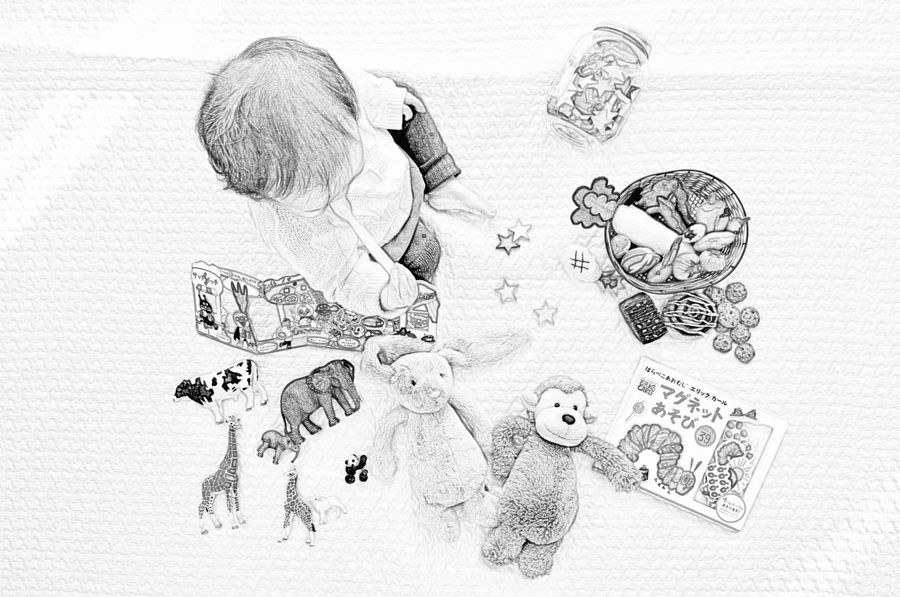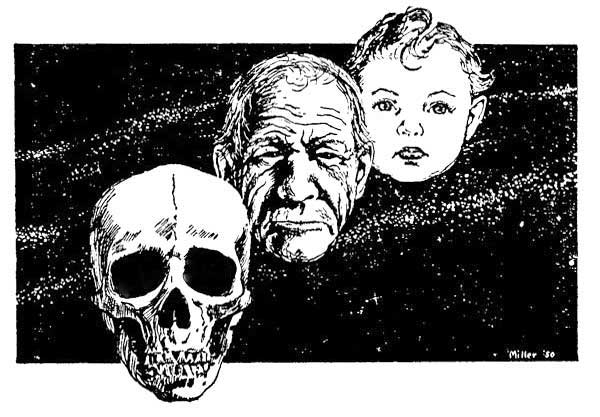The human life span can be split into a number of stages: infancy, childhood, adolescence, young adulthood, adulthood and old age. The lengths of these stages, however, have varied across cultures and time periods. Compared to other primates, humans experience an unusually rapid growth spurt during adolescence, where the body grows 25% in size. Chimpanzees, for example, grow only 14%, with no pronounced spurt.[120] The presence of the growth spurt is probably necessary to keep children physically small until they are psychologically mature. Humans are one of the few species in which females undergo menopause. It has been proposed that menopause increases a woman’s overall reproductive success by allowing her to invest more time and resources in her existing offspring, and in turn their children (the grandmother hypothesis), rather than by continuing to bear children into old age.
Prenatal development
Prenatal development is the process in which an embryo and later fetus develops during gestation. Prenatal development starts with fertilization the first stage in embryogenesis which continues in fetal development until birth.
In human pregnancy, prenatal development, also known as antenatal development, is the development of the embryo following fertilization, and continued as fetal development. By the end of the tenth week of gestational age the embryo has acquired its basic form and is referred to as a fetus. The next period is that of fetal development where many organs become fully developed. This fetal period is described both topically (by organ) and chronologically (by time) with major occurrences being listed by gestational age.
Childhood
Would become the second stage after the “prenatally” and before “or ~ ez”.
The Swiss psychologist Jean Piaget called the first months of life as sensorimotor period or sensorimotor
This stage of childhood that lasts from birth to 6 years old ~ is very important in the formation of the individual stage.

Childhood is the age span ranging from birth to adolescence. According to Piaget’s theory of cognitive development, childhood consists of two stages: preoperational stage and concrete operational stage. In developmental psychology, childhood is divided up into the developmental stages of toddlerhood (learning to walk), early childhood (play age), middle childhood (school age), and adolescence (puberty through post-puberty). Various childhood factors could affect a person’s attitude formation.
The concept of childhood emerged during the 17th and 18th centuries, particularly through the educational theories of the philosopher John Locke and the growth of books for and about children. Previous to this point, children were often seen as incomplete versions of adults.
The term childhood is non-specific in its time span and can imply a varying range of years in human development. Developmentally and biologically, it refers to the period between infancy and adulthood.
In common terms, childhood is considered to start from birth,[citation needed] and as a concept of play and innocence, which ends at adolescence.
In the legal systems of many countries, there is an age of majority when childhood legally ends and a person legally becomes an adult, which ranges anywhere from 15 to 21, with 18 being the most common.[citation needed]
A global consensus on the terms of childhood is the Convention on the Rights of the Child (CRC).Childhood expectancy indicates the time span, which a child has to experience childhood.
Eight life events ending childhood have been described as death, extreme malnourishment, extreme violence, conflict forcing displacement, children being out of school, child labor, children having children and child marriage.[
Adolescence
Adolescence takes place between ages 12 and 18 and is a critical turning point because it is when puberty takes place. Boys’ voices change and girls get their periods and both sexes become more sexually aware beings. As such, they begin to separate more from the parents and become more independent.
Adulthood
Adulthood is the longest stage and normally lasts from age 18 through old age. While there might be smaller psychological or culturally defined stages, adulthood is when human beings are fully grown and must provide entirely for themselves using the skills they learned throughout the first life stages. This is also a significant time because it is when the life cycle is initiated again by the conception and birth of the adult’s own children. At the end of the adult life cycle, the body begins to deteriorate and the life cycle eventually ends in death.

